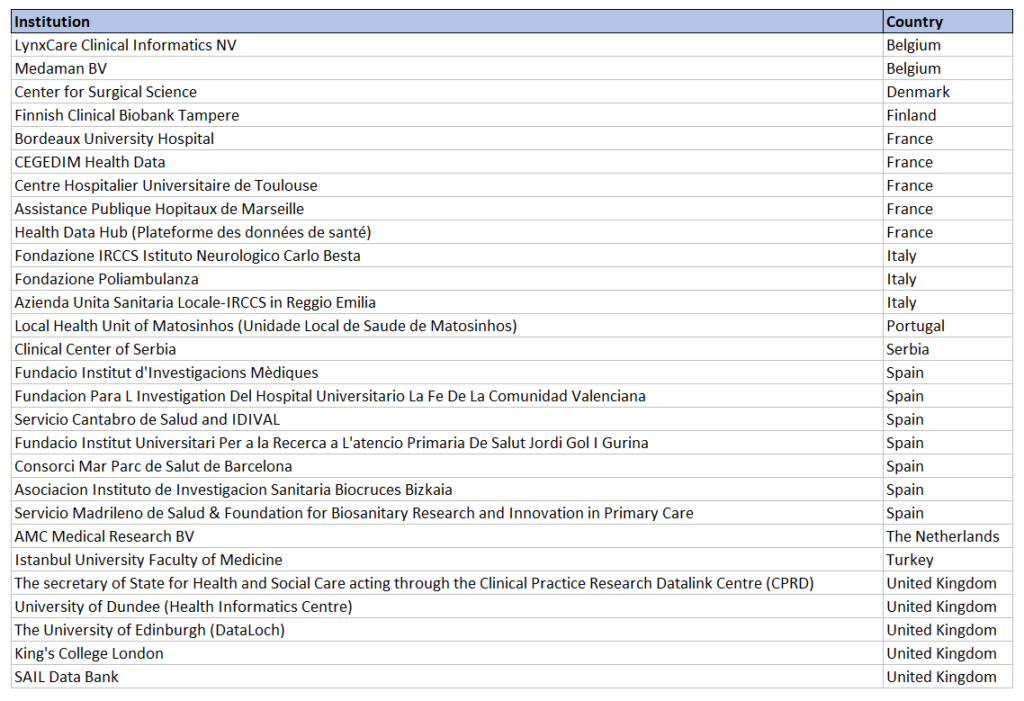28 July 2020, Brussels, Belgium. Healthcare today is ever more complex, with growing expectations from our advancing insights into our own biology, diseases, their diagnosis, treatment and outcomes, and innovation in those treatments. Working within individual institutions to generate insights in the 21st century is much more challenging, hence collaboration, and at scale across multiple countries or regions is becoming the norm. Such scientific collaboration has been typified by the response seen to COVID-19, for example.
EHDEN, within the Innovative Medicines Initiative (IMI), is a public private partnership responding to the need to improve our speed to answers in real world research. To this end, it is creating a federated network, in collaboration with Data Partners, Small-to-Medium Size Enterprises (SMEs), the OHDSI framework and network, researchers, regulatory authorities and many others.
A core aspect of the EHDEN project is to collaborate with Data Partners, such as hospitals, primary care providers, networks of both, regional datasets, claims databases and cohorts, with a view to harmonising their clinical data locally to a common data model. Key to the success of the collaboration, is the support of federated research via standardised analytical tools. EHDEN is working with SMEs to assist in conducting this work, and it organises open public calls for Data Partners and SMEs to be involved. There has been one general call, and one COVID-19 call in the last year, and the next call will be in September, with at least two per year until 2024.
The EHDEN project is very pleased to announce the following Data Partners have signed their sub-grant agreements (and we will announce additional Data Partners who have signed in due course)

Collectively these Data Partners in eleven countries have greater than 150 million health records being mapped to the common data model for either diverse disease areas, or specifically for COVID-19. Associate Prof. Peter Rijnbeek, Coordinator of EHDEN stated, “We are very keen to work together with our Data Partners, SMEs and collaborators to build the research network we all need for real world research in healthcare.” He added, “The response to our open calls has been very positive and forms a strong foundation for EHDEN’s work.”
Ultimately, following this harmonisation work, a federated network is being established, where data remains local, with only the research query moving between Data Partners. This ensures patient privacy and confidentiality within a ‘privacy by design’ model. Research use cases, within EHDEN, and by Data Partners and researchers, will be conducted to evaluate the network, as well as to establish an open science community in the longer term.

